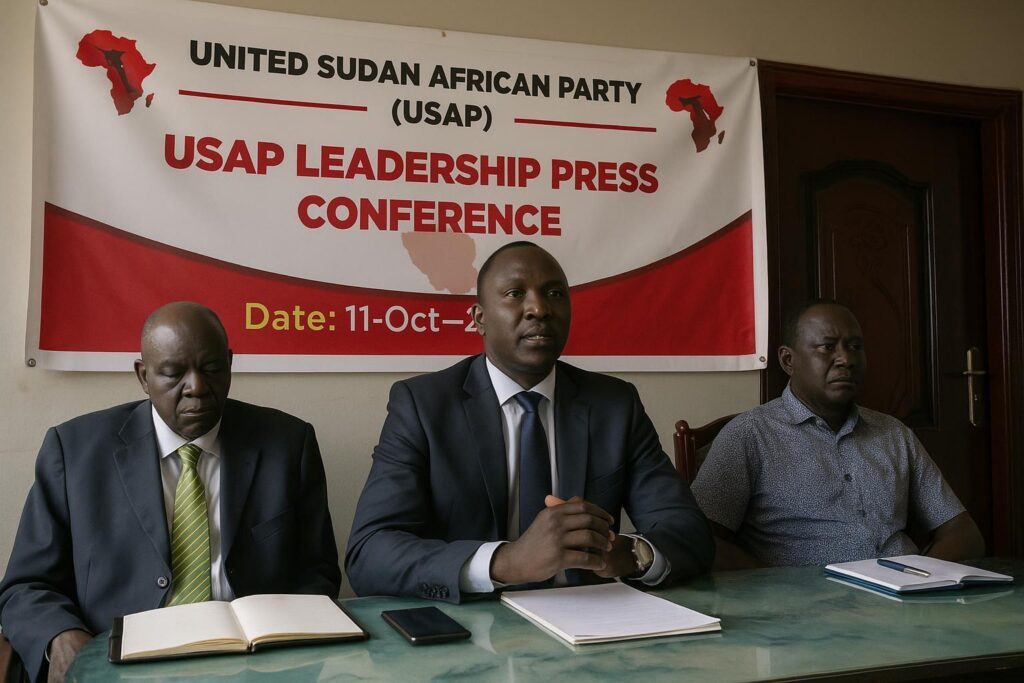Legal Path Chosen by USAP Faction
Facing a deepening leadership crisis, a faction of the United Sudan African Party says it will file a lawsuit to clarify who legitimately heads the movement after the 2021 death of long-time chairman Joseph Ukel.
Secretary for Legal Affairs Bullen Isaiah announced the legal strategy in Juba, reading a statement signed by Acting Chairperson Professor Ajang Bior Duot during a weekend press conference.
Dueling Claims to the Chair
Isaiah alleges that Deputy Justice Minister Joseph Malek Arop seized the party seal by force and registered USAP in his own name, violating internal rules and circumventing the Political Bureau that appointed Duot after Ukel’s passing.
In a 2024 interview, Arop countered that the official registry lists him as chairman and challenged rivals to present contrary documents, stating, “Visit the Political Parties Council; you will see my name.”
Peaceful Channels Exhausted
USAP representatives say they first petitioned oversight bodies such as the Reconstituted Joint Monitoring and Evaluation Commission, the Political Parties Council and the National Transitional Committee, but mediation produced no breakthrough.
“The party rejects violence,” Isaiah stressed, noting that pursuing a courtroom remedy aligns with the constitution and offers a transparent path acceptable to members and observers.
Next Steps Toward Convention
Pending the court’s decision, the faction has installed Duot as Acting Chairman and James Brown Jada as Acting Secretary-General, while other secretaries retain portfolios until a national convention can be convened.
Analysts in Juba believe the outcome could shape broader party realignments ahead of South Sudan’s anticipated elections, making the legal verdict as much about future coalitions as present titles.
Broader Implications for Party Law
The dispute highlights persistent uncertainty surrounding South Sudan’s Political Parties Act, which still awaits full operationalisation as the country transitions from conflict to constitutional order.
Legal scholars argue that a clear ruling could set a precedent for internal democracy across emerging parties, potentially strengthening institutional checks without resorting to coercion.


